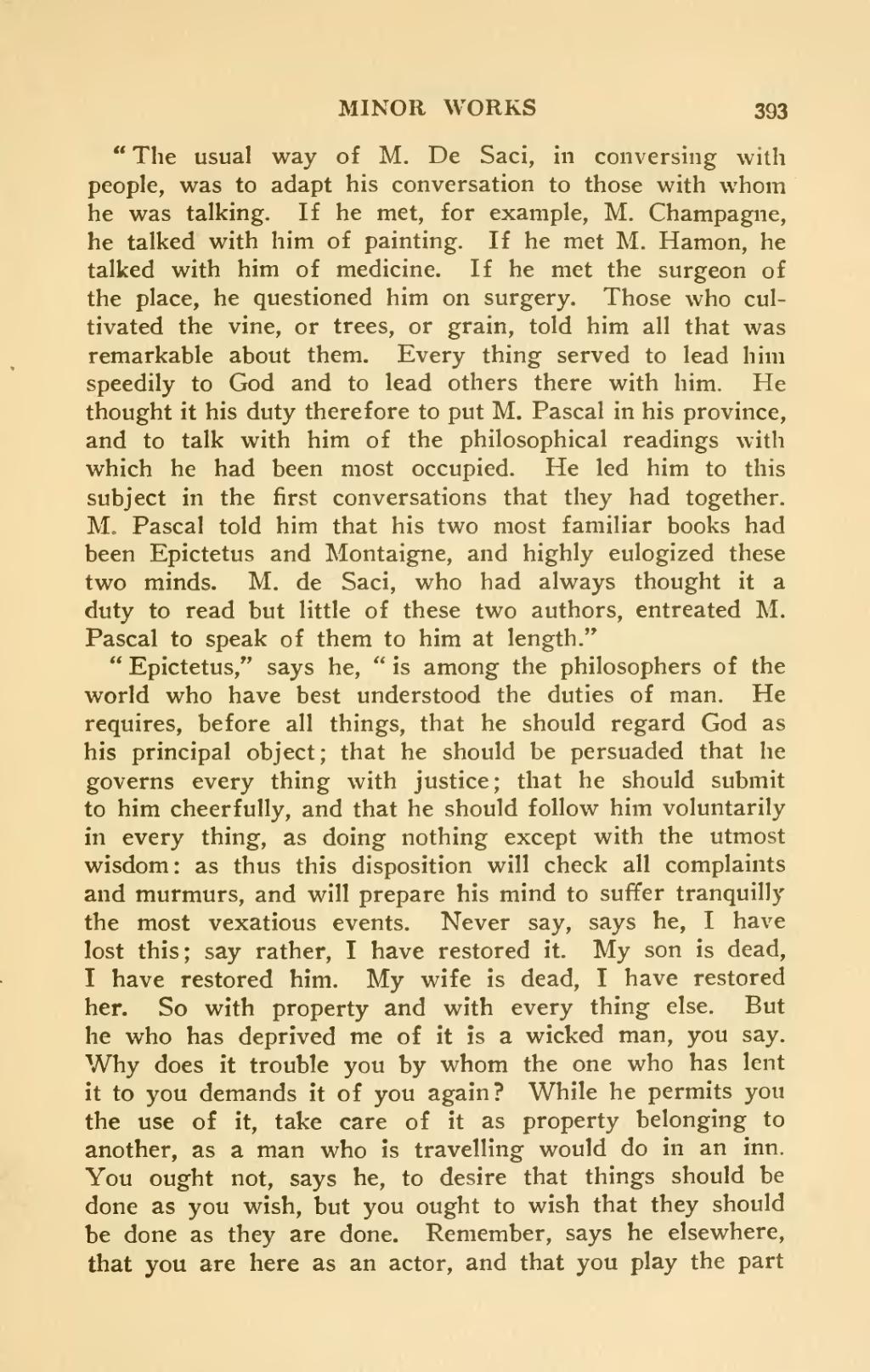"The usual way of M. De Saci, in conversing with people, was to adapt his conversation to those with whom he was talking. If he met, for example, M. Champagne, he talked with him of painting. If he met M. Hamon, he talked with him of medicine. If he met the surgeon of the place, he questioned him on surgery. Those who cultivated the vine, or trees, or grain, told him all that was remarkable about them. Every thing served to lead him speedily to God and to lead others there with him. He thought it his duty therefore to put M. Pascal in his province, and to talk with him of the philosophical readings with which he had been most occupied. He led him to this subject in the first conversations that they had together. M. Pascal told him that his two most familiar books had been Epictetus and Montaigne, and highly eulogized these two minds. M. de Saci, who had always thought it a duty to read but little of these two authors, entreated M. Pascal to speak of them to him at length."
"Epictetus," says he, "is among the philosophers of the world who have best understood the duties of man. He requires, before all things, that he should regard God as his principal object; that he should be persuaded that he governs every thing with justice; that he should submit to him cheerfully, and that he should follow him voluntarily in every thing, as doing nothing except with the utmost wisdom: as thus this disposition will check all complaints and murmurs, and will prepare his mind to suffer tranquilly the most vexatious events. Never say, says he, I have lost this; say rather, I have restored it. My son is dead, I have restored him. My wife is dead, I have restored her. So with property and with every thing else. But he who has deprived me of it is a wicked man, you say. Why does it trouble you by whom the one who has lent it to you demands it of you again? While he permits you the use of it, take care of it as property belonging to another, as a man who is travelling would do in an inn. You ought not, says he, to desire that things should be done as you wish, but you ought to wish that they should be done as they are done. Remember, says he elsewhere, that you are here as an actor, and that you play the part
